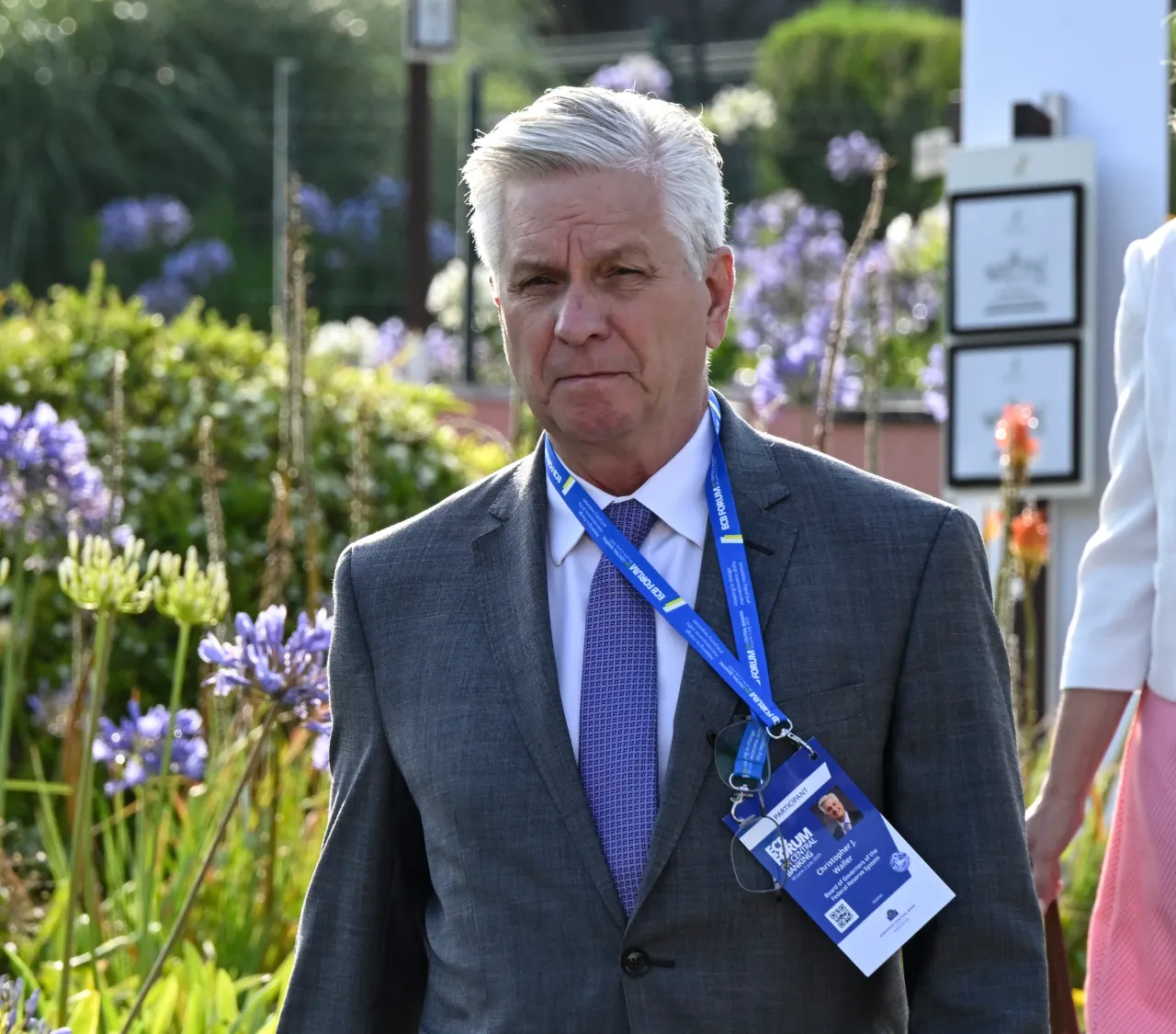Advertisement|Remove ads.
Fed Gov. Waller Calls For Urgent Rate Cut At July Meeting, Shrugging Off Trump Tariffs As ‘One-Time Boost’ To Inflation

With just two weeks to go for the next rate-setting meeting, Federal Reserve Governor Christopher Waller has called for a quarter basis point cut by the central bank.
In prepared remarks delivered at the Money Marketeers Forum at New York University, the dovish Fed official said, “I believe it makes sense to cut the FOMC's policy rate by 25 basis points two weeks from now.”
Waller based the call on hard and soft data on economic activity and the labor market that show that the “economy is still growing, but its momentum has slowed significantly, and the risks to the FOMC's employment mandate have increased.”
Delving into inflation, the Fed official said the June consumer and producer price inflation data, which gives an idea of the price consumption expenditure (PCE) — the Federal Open Market Committee’s (FOMC) benchmark for monetary policy, suggested that the 12-month inflation rate was getting closer to the central bank’s target.
“I believe these data reflect some modest effect from tariff increases, which began in February, and I believe there are further tariff-induced increases to inflation to come later this year,” the governor said.
The tariff uncertainties, however, haven’t deterred stock market investors. On Thursday, the S&P 500 and Nasdaq Composite indices hit fresh highs.
The Invesco QQQ Trust (QQQ), an exchange-traded fund (ETF) that tracks the Nasdaq 100 Index, has gained over 10% this year, while the SPDR S&P 500 ETF (SPY) added nearly 8%.
The SPY was the most actively traded ticker on Stocktwits late Thursday.
Waller, however, noted that there is lingering uncertainty about how trade agreements or escalations in trade conflicts may affect that outcome.
He sees PCE inflation rising three-tenths of a percent to 1% in 2025 if there is a permanent increase in import tariffs of about 10%. This increase would fade over the next year or so, he added.
He, however, sees mitigating factors that include the slowing down of the rollout of many tariffs and a slowdown in the economy itself.
“It is possible, of course, that tariffs may have a larger effect on inflation than I expect, but that won't affect my view of the implications for monetary policy,” Waller said.
“Tariff increases are a one-time boost to prices that do not sustainably increase inflation.”
Waller said he does not subscribe to the view that the monetary policy is only “modestly restrictive.” “In fact, the distance that must be traveled to reach a neutral policy setting weighs heavily on my judgment that the time has come to resume moving in that direction.”
While calling for a 25-basis-point cut at the July 29-30 meeting, Waller said he would support further 25-basis-point cuts to move monetary policy toward a neutral stance. Four more rate-setting meetings are scheduled for this year. “The risks to the economy are weighted toward cutting sooner rather than later,” the Fed staffer said.
For updates and corrections, email newsroom[at]stocktwits[dot]com.












/filters:format(webp)https://st-everywhere-cms-prod.s3.us-east-1.amazonaws.com/large_stock_rising_resized_f17852d7aa.jpg)
/filters:format(webp)https://news.stocktwits-cdn.com/shivani_photo_jpg_dd6e01afa4.webp)
/filters:format(webp)https://news.stocktwits-cdn.com/large_Getty_Images_2230437216_jpg_6078a75ee4.webp)
/filters:format(webp)https://news.stocktwits-cdn.com/vivekkrishnanphotography_58_jpg_0e45f66a62.webp)
/filters:format(webp)https://news.stocktwits-cdn.com/large_Getty_Images_2149037439_jpg_ab9f73d5f7.webp)
/filters:format(webp)https://st-everywhere-cms-prod.s3.us-east-1.amazonaws.com/Rounak_Author_Image_7607005b05.png)
/filters:format(webp)https://news.stocktwits-cdn.com/large_Getty_Images_2205870374_jpg_15fedc8d2f.webp)
/filters:format(webp)https://news.stocktwits-cdn.com/large_berkshire_hathaway_jpg_86250c27d6.webp)
/filters:format(webp)https://news.stocktwits-cdn.com/large_Stock_chart_representative_image_resized_jpg_dacf5b1590.webp)